新人教版高中英语必修3Unit 5 The Value of Money-Discovering Useful Structures导学案
-
- 页数:6页
- 字数:约 6370 字
- 大小:118.38KB
- 格式:.docx
- 版本:Office2016及以上版本
- 作者:曼达林演示
Unit 5 The Value of Money-DiscoveringUseful Structures导学案
情态动词和过去将来时态
This teachingperiod is about expressing modality and talking about future events in thepast. Modality reflects the feelings ofthe person who is talking. It is still a really big challenge for seniorstudents to master the usages of the modal words. Generally, in this unit, wewill review and further learn the following model words, would/had better/ought to/dare/should etc.

As for thestructures about the future events, we should lead students to master wouldbe/do; was /were going to do/be about to do.
1. Guide students to review the basic usages of “modality” andtalk about future events in the past.
2. Enable students touse the related grammar structures flexibly.
3. Strengthenstudents’ great interest in grammar learning.
1. Help students to appreciate thefunction of “modality”and the meanings of the structures “was (were) about to/was (were) going to do/was (were) going”
2. Instruct students to write essays usingthe proper “modality”and past future tenses.
指出下列句中画线部分的含义
1.That is why Letters from Father Christmas could be the perfectbook.
2.The children must have been very excited as they opened it.
3.They might not receive their presents if they were not good.
4.I was able to hold a knife and fork—and chopsticks!
5.But there are still some dishes that Dad dare not try even aftermany years of marriage to my mother.
6.Mum and I just have to find a way to get him into thekitchen!
7.wed better not eat too much roast food as it may make ussuffer from heat inside our bodies, ...
8.“You neednt try it if you dont want to,” Mum said.
【答案】:1.能够 2.一定;准是 3.可能 4.能够 5.胆敢,敢于 6.不得不 7.最好 8.不必
1.表示能力:can用来表示现在的能力,could表示过去的能力。
I canplay basketball now, but I couldnt when I was young.
现在我会打篮球了,但小时候我不会。
2.表示请求和许可:could语气比can委婉,但回答时只能用can。
Can/Could you lend me a hand?
你能帮我一下吗?
3.表示推测,意为“可能”。多用于否定句或疑问句。
—Canhe be in the reading room now?
—No,he cant be in it. Because I saw him in the office just now.
——他现在可能在阅览室吗?
——不,他不可能在(阅览室)。因为我刚刚在办公室看见他了。
4.表示理论上或习惯上的可能性,意为“可能会”。
Joggingcan help you keep fit.慢跑有助于保持身体健康。
1.表示征求对方的许可或允许(不用might)对方做某事。
—MayI come in?
—Yes,you may/can.
——我可以进来吗?
——是的,你可以进来。
(No,you cant.不行,你不能进来。)
Youmay go now.
你现在可以走了。
2.表示推测(把握不大),意为“可能”,多用于肯定句。might比may可能性更小。
Hemay come, or he may not.
他可能来,也可能不来。
Itmay/might rain this afternoon. Youd better take a raincoat with you.
今天下午可能会下雨。你最好带上雨衣。
3.may用于祈使句,表示祝愿。
May you succeed!
祝你成功!
4.“may/might as well+动词原形”表示“不妨,还不如”。
I may/mightas well start at once.
我还不如马上就动身。
1.表示命令或强烈的建议,意为“必须”。
Allthe students must obey the school rules.
所有学生必须遵守校规。
2.表示十分肯定的推测,意为“一定;准是”。
Bettymust be in the next room. I can hear her talking there.
贝蒂肯定在隔壁房间。我能听见她在那儿讲话。
3.表示说话人的一种态度,意为“偏要;硬要;偏偏”。
Whymust he go out in the bad weather?
为什么他偏要在这种坏天气出门?
4.must not表示禁止,意思是“不许”“不准”“不可以”等。
Youmustnt stop your car in the busy street.
你不能把车停在繁忙的路上。
5.回答must问句时,肯定回答多用must;否定回答多用neednt或donthave to。
—MustI finish my homework before eight oclock?
—Yes,you must.(No, you neednt/you dont have to.)
——我必须要在8点之前完成作业吗?
——是的,必须。(不,没必要。)
beable to意为“能够,有能力”,不仅有时态、人称和数的变化,而且还可以与某些情态动词连用(通常不与 can 连用),甚至还可以有非谓语形式。
Sincehis accident he hasnt been able to leave thehouse.
自出事之后,他一直未能离开家。
Youmight be able to persuade him.
你也许能够说服他。
Ihope to be able to do the work.
我希望能干得了这项工作。
Iregret not being able to help her.
我很遗憾未能帮助她。
[易混辨析:can, be able to表示“能力”时的区别]
can
用于指现在,常表示自身具有的能力
be able to
用于各种时态,表示经过努力后所具有的能力
Babiescan swim when they were born.
婴儿们刚生下来时会游泳。(自身具有的能力)
Withouthis hard work, he was not able to get good grades.
如果他没有努力工作,他是不可能取得好成绩的。(经过努力)
dare既可作情态动词,也可作实义动词。
1.dare作情态动词时,表示“敢,敢于”,后跟动词原形,常用于疑问句、否定句和条件句中。此时的dare没有人称、数和时态的变化,能单独构成否定和疑问。例如:
Dare you climb that tree?
你敢爬那棵树吗?
Hedarent go there because it is very dangerous.
他不敢去那儿,因为那儿很危险。
2.dare用作实义动词时,有时态和人称的变化,用do,does或did来构成否定句或疑问句。
Shedidnt dare to say a word, did she?
她一句话也不敢说,是吗?
haveto意为“不得不”,有时态、人称和数的变化,其否定形式为
dont/doesnt/didnt have to。
Itstoo late. I have to go home now.
天色太晚了,我现在得回家了。
Youdont have to finish the work now.
你没有必要现在完成这项工作。
【点津】 have to和must的区别:
haveto表示一种客观的需要,而must表示一种主观的需要。此外,must还表示“偏要”“非得”的意思。
I haveto attend an important meeting this afternoon.
今天下午我不得不参加一个重要的会议。
I mustclean the room because there are too dirty.
因为太脏了,我必须要打扫房间。
hadbetter意为“最好;应该”,后跟动词原形,常用来提出建议,或表示迫切的希望、警告等,语气较强。其中动词had没有人称或数的变化。hadbetter的简略式为:d better,否定式为:had better not。
Shedbetter get here soon or shell miss the opening ceremony.
她最好快点到这儿来,否则她会错过开幕式的。
Theyhad better not be late.
他们最好不要迟到。
1.作情态动词
(1)need作情态动词时,常用于疑问句、否定句或条件句中,意为“必须”或“需要”。
—NeedI finish the work today?
—Yes,you must. /No, you neednt.
——我需要今天干完这项工作吗?
——是的,必须干完。/不用,你不必干完。
(2)neednt意为“不必”,表示客观上不必如何。
Theresplenty of time. You neednt drive so fast.
时间很充足,你不必开这么快。
2.作实义动词
need作实义动词时,后可接名词、动名词、不定式等,有人称、时态和数的变化。
Thebike needs repairing.
=The bike needs to be repaired.
这辆自行车需要修理。
过去将来时
过去将来时表示在过去某一时间将要发生的动作或存在的状态。过去将来时常用在主句谓语动词为过去时态的宾语从句中。过去将来时句子中有时包含时间状语the next day,soon等。
您可能喜欢的文档
查看更多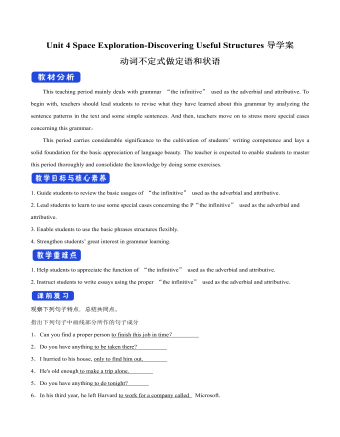
新人教版高中英语必修3Unit 4 Space Exploration-Discovering Useful Structures导学案
- 页数:4页
- |大小:113.97KB

新人教版高中英语必修3Unit 5 The Value of Money-Reading and Thinking教学设计一
- 页数:4页
- |大小:74.83KB

新人教版高中英语必修3Unit 5 The Value of Money-Listening &Speaking&Talking教学设计
- 页数:6页
- |大小:843.36KB

新人教版高中英语必修3Unit 5 The Value of Money-Listening &Speaking教学设计
- 页数:5页
- |大小:505.33KB

新人教版高中英语必修3Unit 5 The value of money-Reading and Thinking教学设计二
- 页数:4页
- |大小:69.26KB

新人教版高中英语必修3Unit 5 The Value of Money-Reading for Writing教学设计二
- 页数:5页
- |大小:107.12KB
热门课件教案
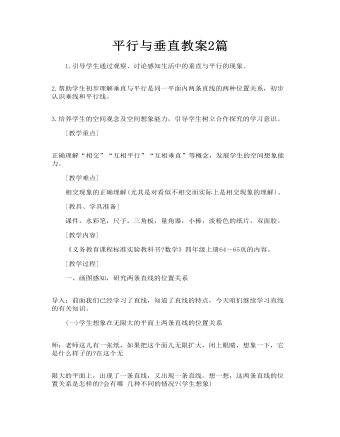
平行与垂直教案2篇
- 页数:9页
- |大小:101.04KB
- 课件教案
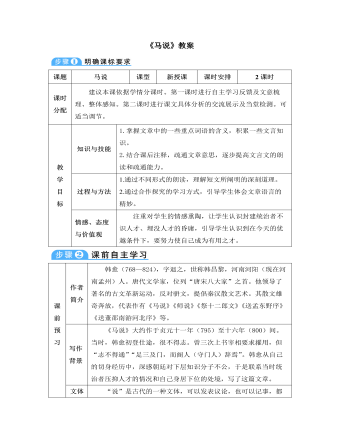
部编版语文八年级下册《马说》教案
- 页数:8页
- |大小:367.50KB
- 课件教案

精选高中生期末评语
- 页数:42页
- |大小:7M
- 课件教案
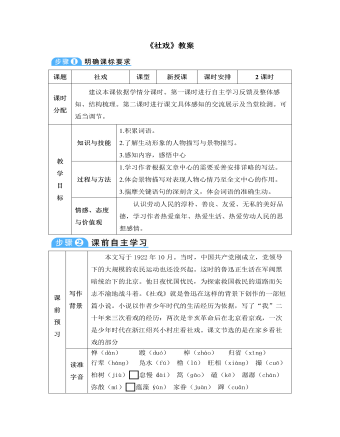
部编版语文八年级下册《社戏》教案
- 页数:8页
- |大小:340.00KB
- 课件教案
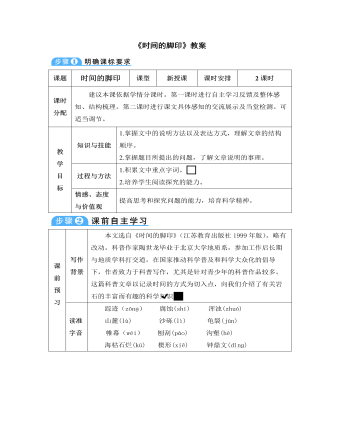
部编版语文八年级下册《时间的脚印》教案
- 页数:4页
- |大小:511.50KB
- 课件教案
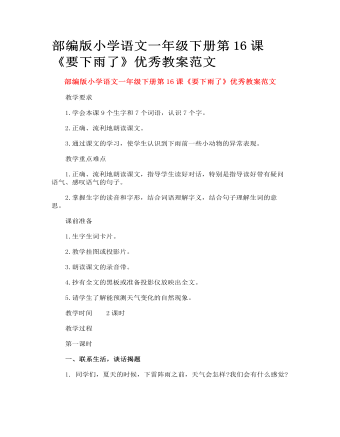
部编版小学语文一年级下册第16课《要下雨了》优秀教案范文
- 页数:4页
- |大小:19.94KB
- 课件教案
今日更新

精选高中生期末评语
- 页数:42页
- |大小:7M
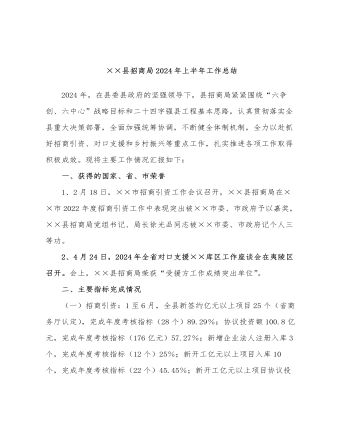
××县招商局2024年上半年工作总结
- 页数:12页
- |大小:142.54KB
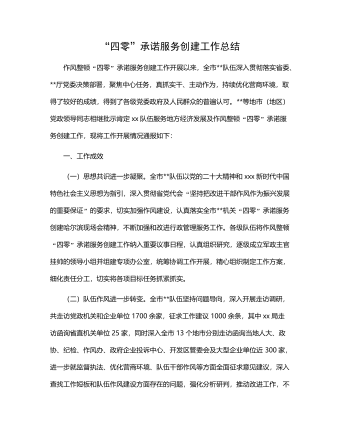
“四零”承诺服务创建工作总结
- 页数:5页
- |大小:39.83KB
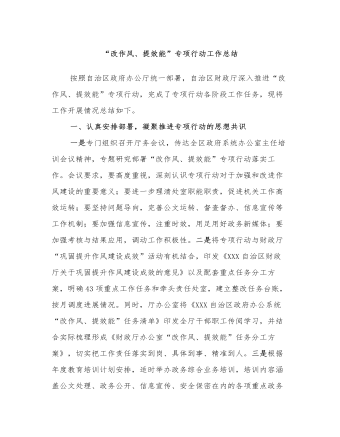
“改作风、提效能”专项行动工作总结
- 页数:6页
- |大小:139.05KB
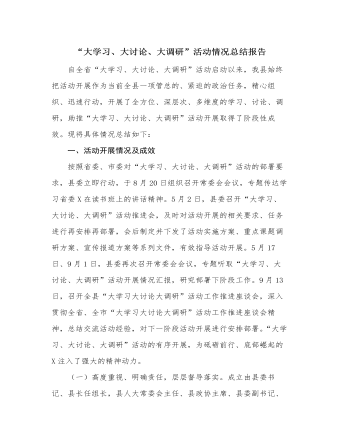
“大学习、大讨论、大调研”活动情况总结报告
- 页数:7页
- |大小:26.12KB
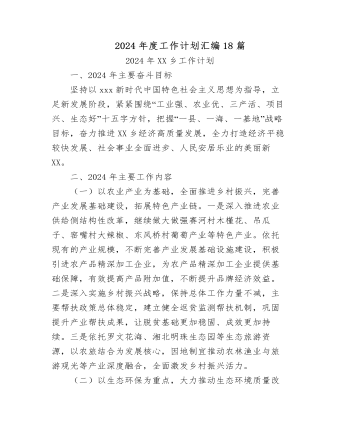
2024年度工作计划汇编(18篇)
- 页数:72页
- |大小:196.93KB






